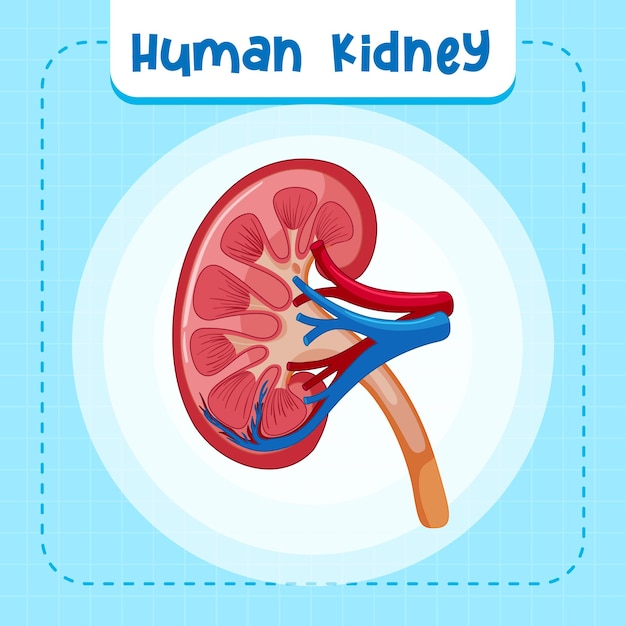
Did you know that your kidneys work to clean around 200 quarts of your blood each day to remove waste and extra water? This turns into urine, which travels via tubes (ureters) to your bladder for storage before leaving your body.
Shaped like beans, your kidneys sit at the bottom of your rib cage on each side of your spine. Despite their small size, they’re mighty important! When functioning properly, they keep your body’s balance of salt and minerals in check. Wastes from your food and from worn-out tissues, like muscles, are sent to the blood, and your kidneys do the refinement part by filtering out these wastes.
Further, they produce three hormones- renin, erythropoietin, and calcitriol, performing crucial jobs like controlling blood pressure, stimulating bone marrow to produce red blood cells, and maintaining your body’s calcium levels.
Kidney diseases, often hidden until the later stages, are potentially dangerous. These occur when millions of tiny units in your kidneys, called nephrons, are unable to filter waste from the blood accurately. This can happen gradually or suddenly, and individuals with a family history of kidney issues are at an increased risk.
So why do kidneys fail? Certain conditions, such as kidney stones, diabetes, chronic or polycystic kidney disease, urinary tract infections, glomerulonephritis, and trauma to the kidneys, can eventually lead to kidney failure. Kidney damage can become so severe that either dialysis (an artificial filtering process) or a kidney transplant may be required.
Now, how can you reduce your risk of kidney issues? Here some simple tips:
1. Keep an eye on your blood pressure: Too high can cause kidney problems. Aim for 120/80.
2. Control your blood sugar: High levels can increase the risk of early kidney disease.
3. Drink enough water: It helps clear waste material and sodium from your kidneys, reducing the risk of chronic kidney disease.
4. Watch your weight: Being overweight can spike risks of kidney problems, high blood pressure, high blood sugar, etc.
5. Keep moving: Regular exercise not only enhances your overall health but also improves kidney health.
6. Quit smoking: It can damage blood vessels in many organs, including the kidneys.
7. Be careful with over-the-counter (OTC) medications use: Regular use, especially for pain, can be risky for your kidneys.
8. Limit alcohol intake: Habitual and heavy drinking can increase the risk of chronic kidney disease.
9. Stay informed: Regularly check reliable health news platforms like Healthline, to keep yourself updated about kidney health.
Remember that taking preventative measures for your kidneys can be highly rewarding for your overall health. If you happen to face serious kidney issues, be sure to reach out to adept nephrologists who specialize in these kinds of conditions. They have the requisite knowledge and experience to diagnose and treat various kidney problems effectively, enhancing your chances of recovery. So, stay healthy, be proactive, and frequent check-ups are always good for your kidneys.


